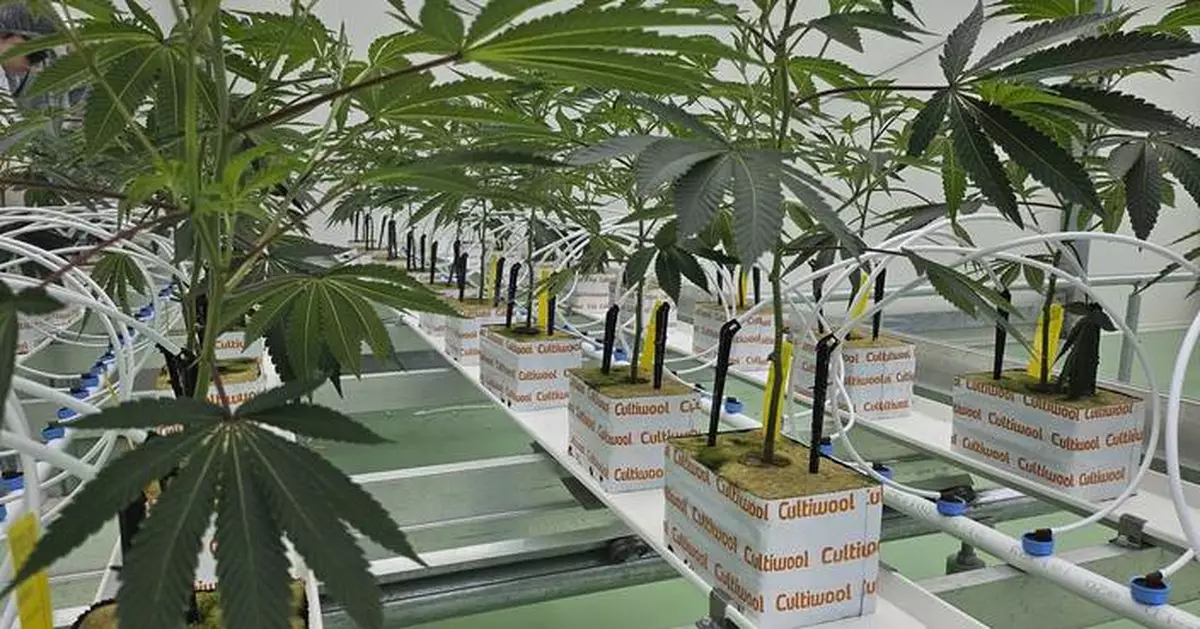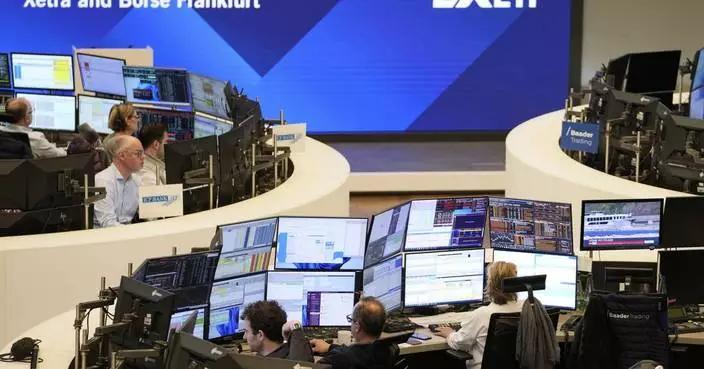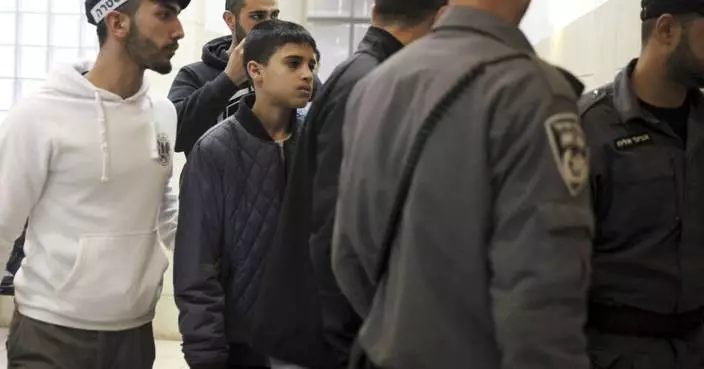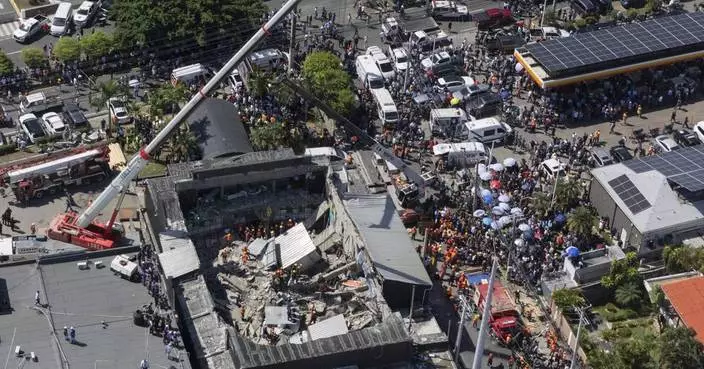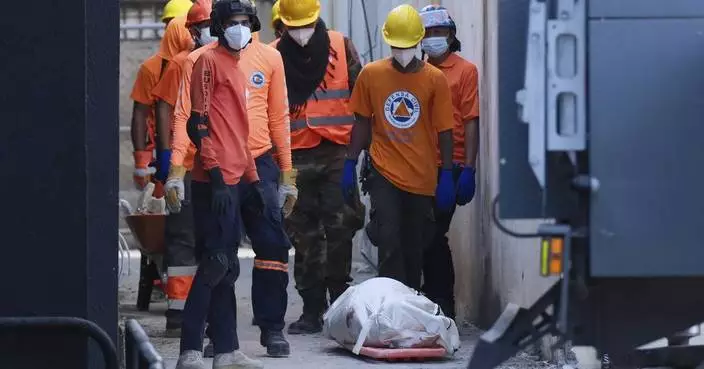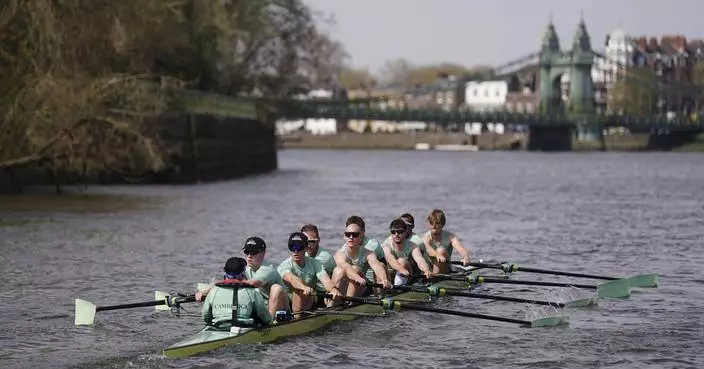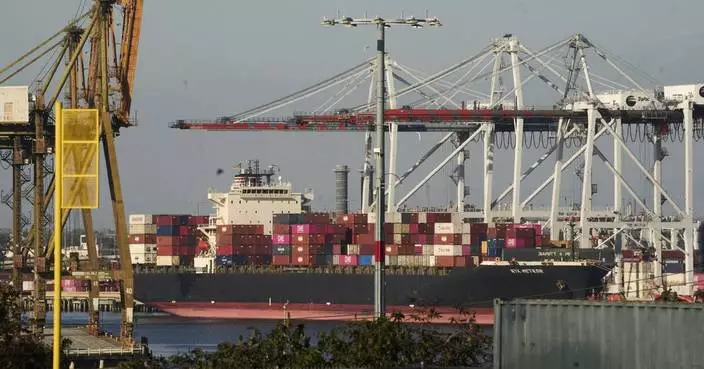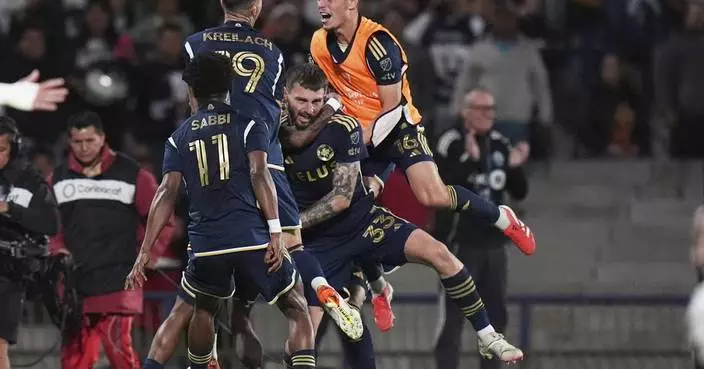BEMMEL, Netherlands (AP) — The Netherlands expanded a government-run initiative on Monday allowing legal cannabis sales.
While growing cannabis is still illegal, cannabis shops — known as coffeeshops — in 10 municipalities will be allowed to sell marijuana from 10 licensed producers.
Click to Gallery
Celebratory "space cake" is displayed at Hollandse Hoogtes growing facility in Bemmel, Netherlands, Monday, April 7, 2025. (AP Photo/Molly Quell)
Celebratory "space cake" is displayed at Hollandse Hoogtes growing facility in Bemmel, Netherlands, Monday, April 7, 2025. (AP Photo/Molly Quell)
Cannabis plants sit in the Hollandse Hoogtes growing facility in Bemmel, Netherlands, Monday, April 7, 2025. (AP Photo/Molly Quell)
Cannabis plants sit in the Hollandse Hoogtes growing facility in Bemmel, Netherlands, Monday, April 7, 2025. (AP Photo/Molly Quell)
Cannabis plants sit in the Hollandse Hoogtes growing facility in Bemmel, Netherlands, Monday, April 7, 2025. (AP Photo/Molly Quell)
“Weed was sold here legally for 50 years, but the production was never legal. So it’s finally time to end that crazy, unexplainable situation and make it a legal professional sector,” Rick Bakker, commercial director at Hollandse Hoogtes, one of the regulated producers, told The Associated Press.
Some 80 coffeeshops are taking part in the experiment which advocates hope this will ultimately end a long-standing legal anomaly — you can buy and sell small amounts of weed without fear of prosecution in the Netherlands, but growing it commercially remains illegal.
Bakker's company in Bemmel, near the German border, is indistinguishable from the surrounding greenhouses producing tomatoes and peppers. But it makes 200 kilograms (440 pounds) of weed per week and is one of the largest producers in the experiment.
A trailblazer in decriminalizing pot since the 1970s, the Netherlands has grown more conservative. Amsterdam, long a magnet for marijuana smokers, has been closing coffeeshops in recent years and has banned smoking weed on some of the cobbled streets that make up its historic center.
Advocates have been pushing for a legal growing for years, citing the safety of the product as well as concerns about crime.
Benjamin Selma, the head grower at Hollandse Hoogtes who worked in cannabis production in California for more than a decade, said the quality control for the cannabis is extremely high. “We do a full test, microbial, cannabinoid, terpene, as well as yeast and anaerobic bacteria, heavy metals as well. So it’s very, very controlled,” he told the AP.
The company, which does not use pesticides and tightly regulates growing conditions, has an eye to the environment. The production facility gets its energy from solar panels and uses biodegradable packaging.
“It is also a great opportunity to see how cooperation within the closed chain between legal growers, coffeeshop owners and all other authorities involved works,” Breda Mayor Paul Depla told the AP when the first phase was launched in 2023.
The experiment "is really a political compromise,” according to Derrick Bergman, chairman of the Union for the Abolition of Cannabis Prohibition. The plan dates to 2017, when Christian political parties and pro-legalization parties agreed to a test run after a bill to decriminalize production failed.
The government will evaluate the experiment after four years.
“A research team, advised by an independent guidance and evaluation committee, is examining the effects of a controlled cannabis supply chain on crime, safety and public health,” the government said in a statement.
Selma said he is happy to be working without concerns about prosecution. “I’ve seen some bad moments,” he said, “and I don’t know if I ever believed I would be so free.”
The coffeeshops taking part in the initiative are located in Almere, Arnhem, Breda, Groningen, Heerlen, Hellevoetsluis, Maastricht, Nijmegen, Tilburg, and Zaanstad.
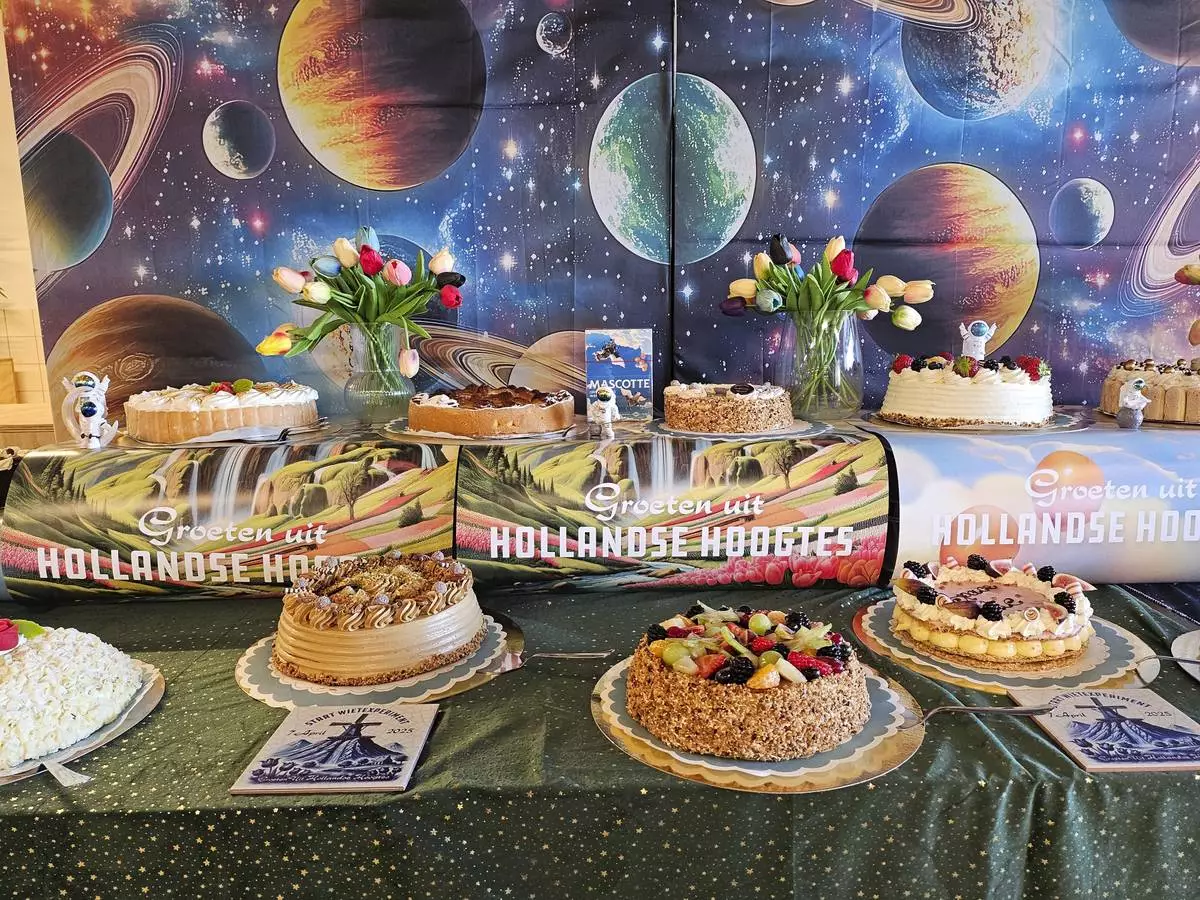
Celebratory "space cake" is displayed at Hollandse Hoogtes growing facility in Bemmel, Netherlands, Monday, April 7, 2025. (AP Photo/Molly Quell)

Celebratory "space cake" is displayed at Hollandse Hoogtes growing facility in Bemmel, Netherlands, Monday, April 7, 2025. (AP Photo/Molly Quell)
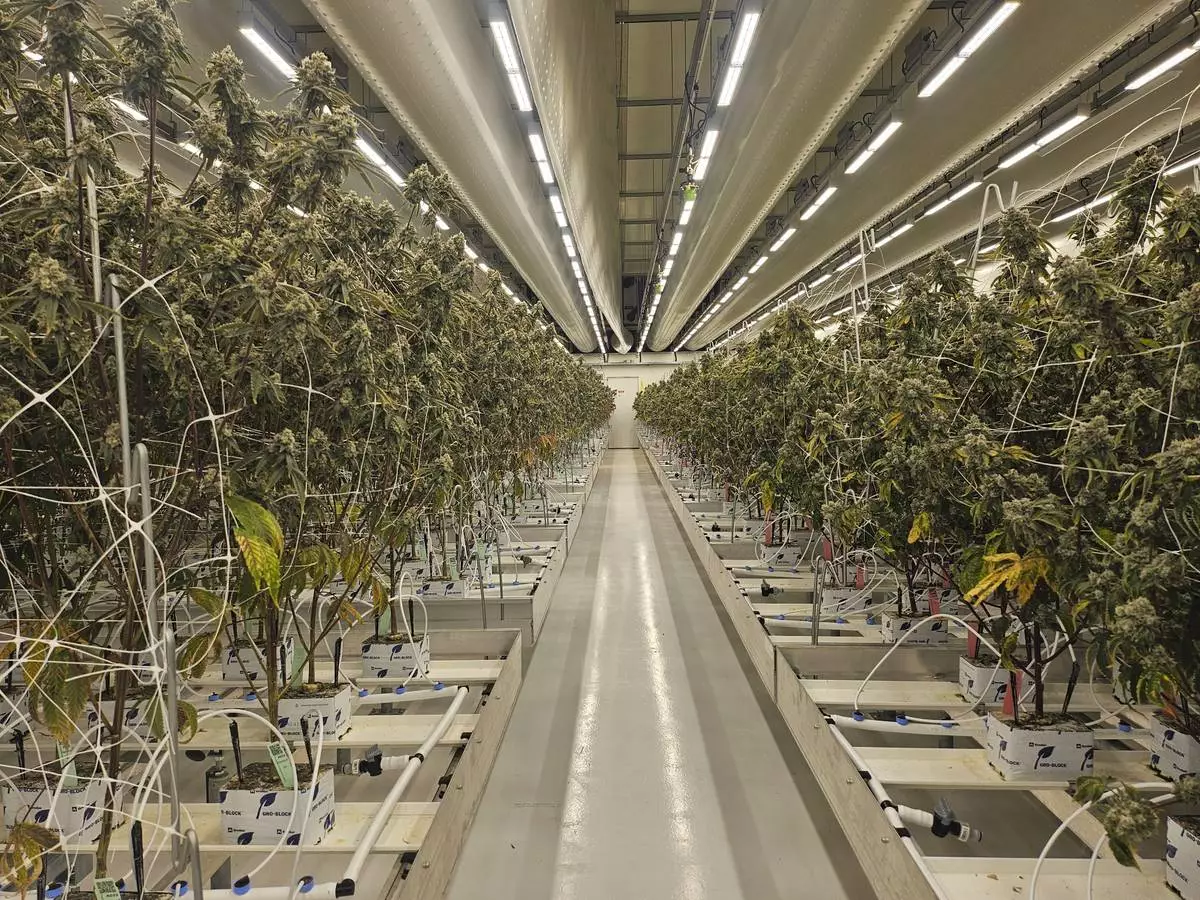
Cannabis plants sit in the Hollandse Hoogtes growing facility in Bemmel, Netherlands, Monday, April 7, 2025. (AP Photo/Molly Quell)
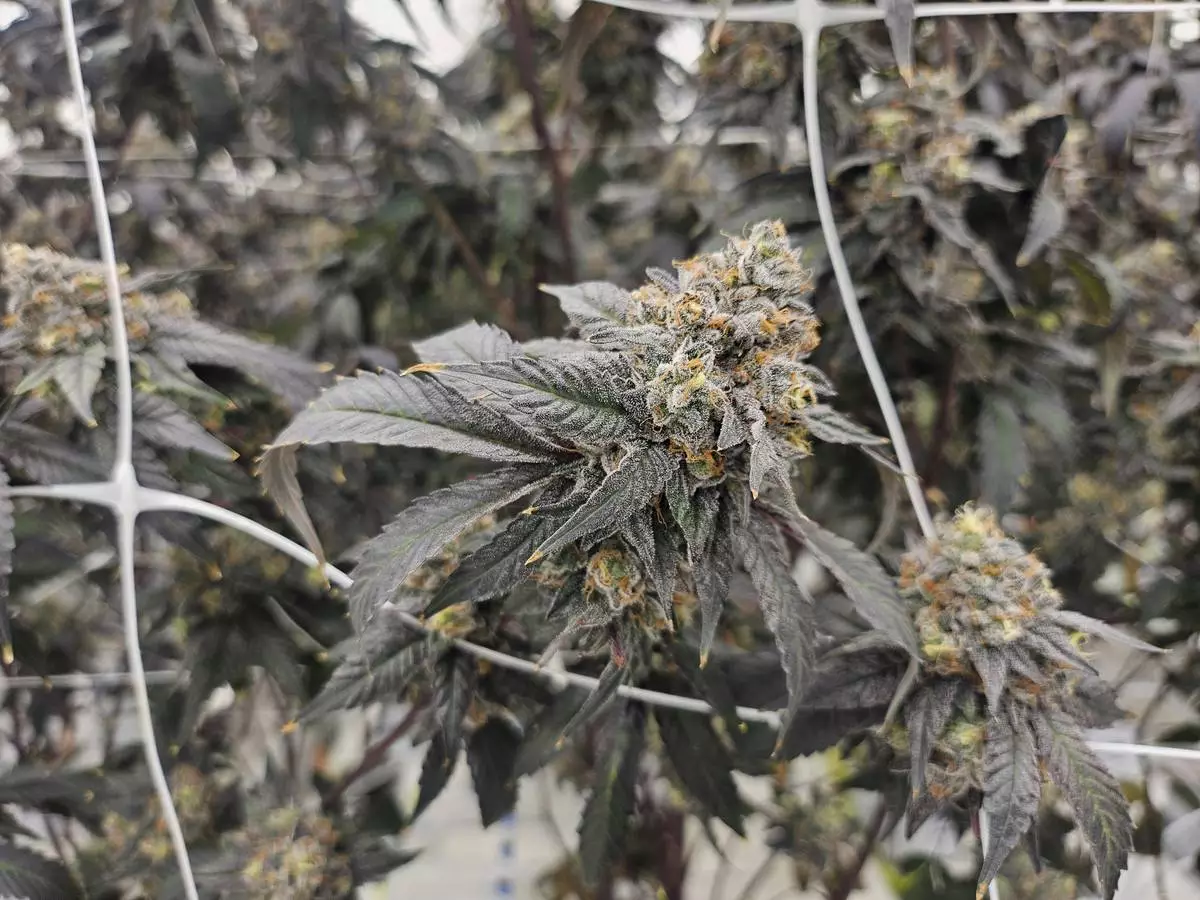
Cannabis plants sit in the Hollandse Hoogtes growing facility in Bemmel, Netherlands, Monday, April 7, 2025. (AP Photo/Molly Quell)
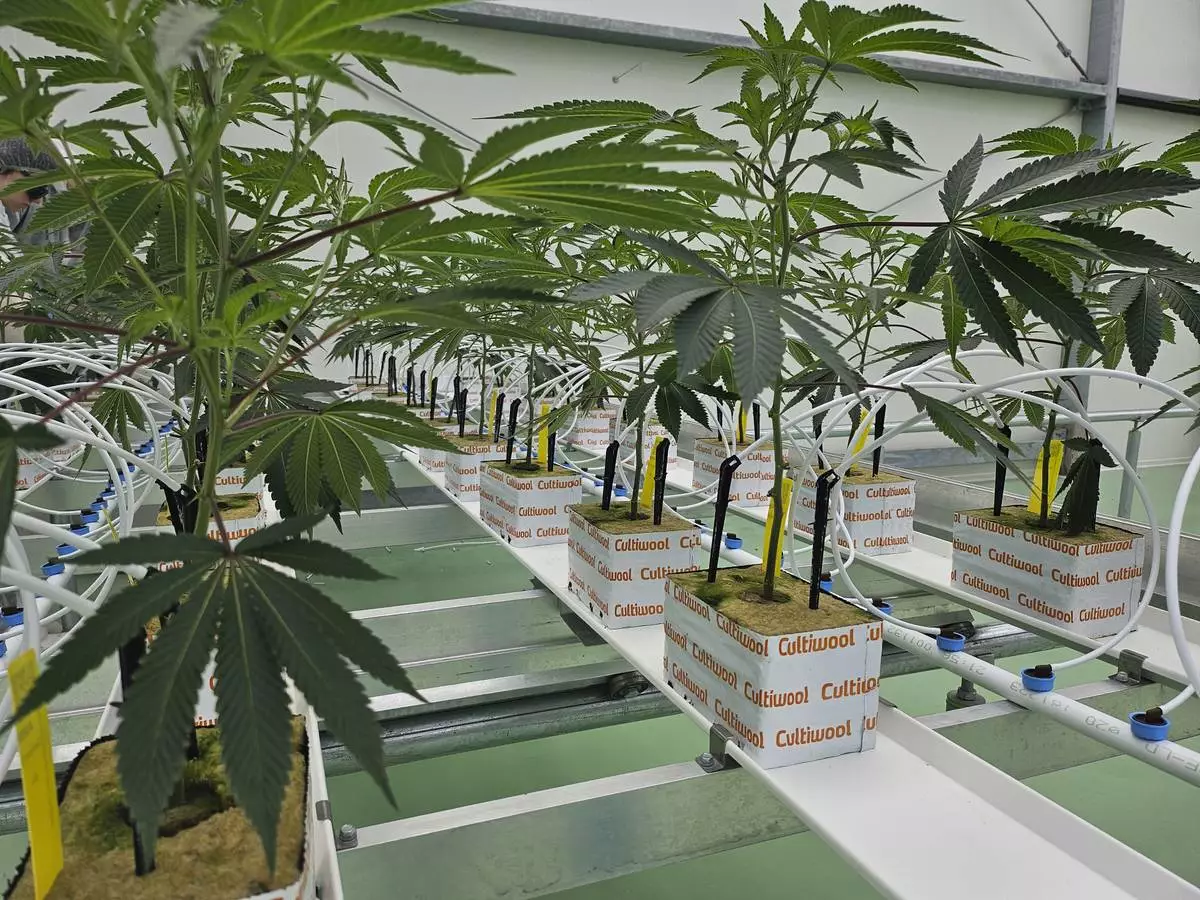
Cannabis plants sit in the Hollandse Hoogtes growing facility in Bemmel, Netherlands, Monday, April 7, 2025. (AP Photo/Molly Quell)
Russia freed a Russian American convicted of treason on Thursday in exchange for a Russian-German man jailed on smuggling charges in the U.S., a prisoner swap that comes as the two countries work to repair ties.
Ksenia Karelina, also identified in the media as Ksenia Khavana, is “on a plane back home to the United States,” U.S. Secretary of State Marco Rubio said in a post on social media platform X. She was arrested in the Ural Mountains city of Yekaterinburg in February 2024 and convicted of treason on charges stemming from a donation of about $52 to a charity aiding Ukraine. American authorities have called the case “absolutely ludicrous.”
Arthur Petrov was released as part of a swap in Abu Dhabi, United Araba Emirates, according to the Federal Security Service, or FSB, Russia's main security and counterespionage agency. Petrov was arrested in Cyprus in August 2023 at the request of the U.S. on charges of smuggling sensitive microelectronics to Russia and extradited to the U.S. a year later.
Karelina was among a growing number of Americans arrested in Russia in recent years as tensions between Moscow and Washington spiked over the war in Ukraine. Her release is the latest in a series of high-profile prisoner exchanges Russia and the United States carried out in the last three years — and the second since President Donald Trump took office and reversed Washington's policy of isolating Russia in an effort to end the war in Ukraine.
Russian and U.S. diplomats are sitting down Thursday for another round of talks in Istanbul on improving diplomatic ties.
In February, Russia released American teacher Marc Fogel, imprisoned on drug charges, in a swap that the White House described as part of a diplomatic thaw that could advance peace negotiations. That same month, Russia released another American just days after arresting him on drug smuggling charges.
Karelina, a former ballet dancer, reportedly obtained U.S. citizenship after marrying an American and moving to Los Angeles. She was arrested when she returned to Russia to visit her family last year.
The FSB accused her of “proactively" collecting money for a Ukrainian organization that was supplying gear to Kyiv's forces. The First Department, a Russian rights group, said the charges stemmed from a $51.80 donation to a U.S. charity aiding Ukraine.
“I am overjoyed to hear that the love of my life, Ksenia Karelina is on her way home from wrongful detention in Russia,” Karelina’s fiancé, Chris van Heerden, said in a statement. “She has endured a nightmare for 15 months and I cannot wait to hold her. Our dog, Boots, is also eagerly awaiting her return.”
He thanked Trump and his envoys, as well as prominent public figures who had championed her case.
The exchange was first reported by the Wall Street Journal.
Karelina’s lawyer, Mikhail Mushailov, also confirmed she was on her way back to the U.S. The United Arab Emirates' state-run WAM news agency released photos of Karelina boarding a plane and one of her standing next to Yousef al-Otaiba, the UAE’s ambassador to the U.S.
The FSB, which said that Russian President Vladimir Putin had pardoned Karelina before the swap, released a video that showed her being escorted to a plane somewhere in Russia. The footage then featured of what appeared to be the scene of exchange at the Abu Dhabi airport, with Petrov walking off a plane and shaking hands with Russian officials on the tarmac.
The same video showed Petrov undergoing medical checkups on a flight to Russia. “I have no particular complaints, just a bit tired,” he said.
Petrov was accused by the U.S. Justice Department of involvement in a scheme to procure microelectronics subject to U.S. export controls on behalf of a Russia-based supplier of critical electronic components for the country's weapons industries. He was facing a 20-year prison term in the U.S.
Abu Dhabi was the scene of another high-profile prisoner swap between Russia and the United States. In December 2022, American basketball star Brittney Griner was traded for the notorious Russian arms dealer Viktor Bout.
The UAE has been a mediator in prisoner swaps between Russia and Ukraine, while the skyscraper-studded city of Dubai has become home to many Russians and Ukrainian who fled there after the start of Moscow’s 2022 full-scale invasion of Ukraine.
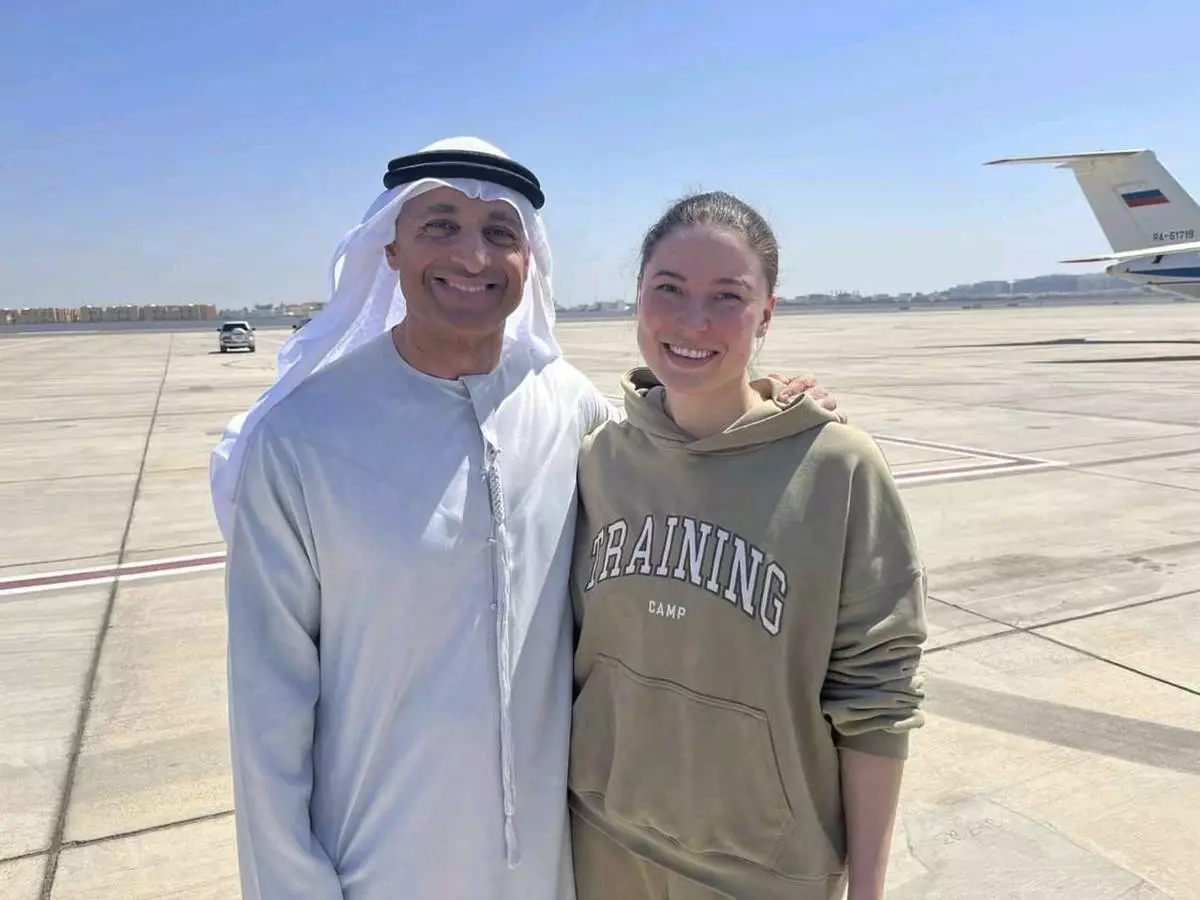
This photo released by the state-run WAM news agency shows Yousef al-Otaiba, the UAE ambassador to the U.S., left, standing next to U.S.-Russian dual national Ksenia Karelina after her release at an airport in Abu Dhabi, United Arab Emirates, Thursday, April 10, 2025. (WAM via AP)
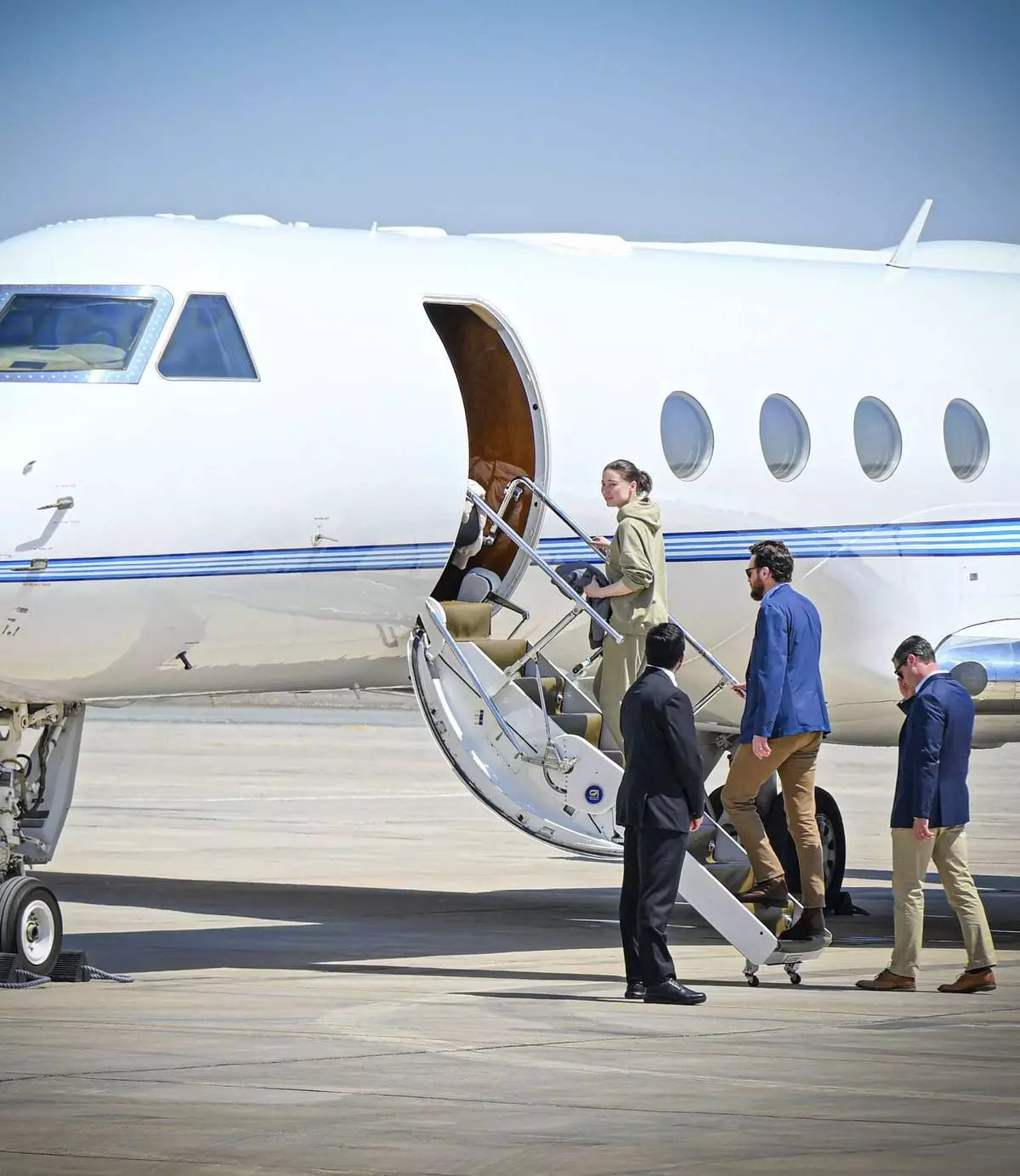
This photo released by the state-run WAM news agency shows U.S.-Russian dual national Ksenia Karelina getting on a private jet after her release at an airport in Abu Dhabi, United Arab Emirates, Thursday, April 10, 2025. (WAM via AP)
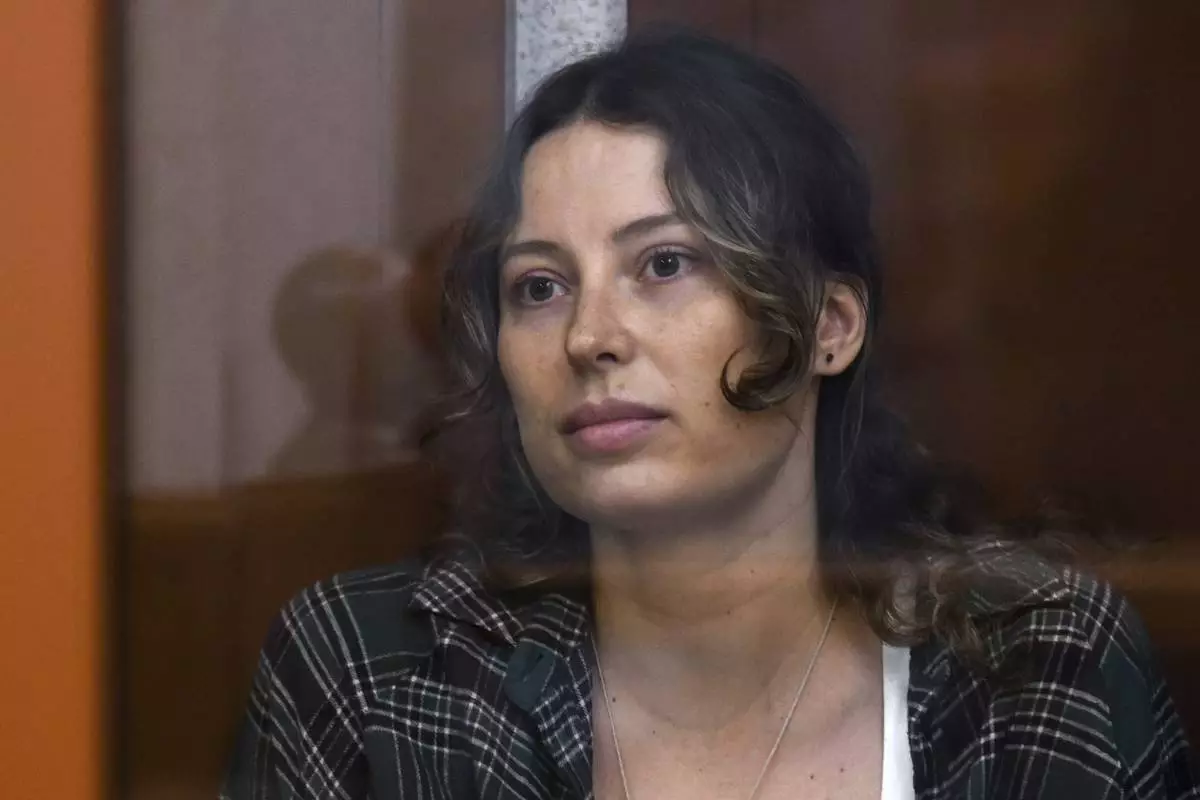
FILE - Ksenia Karelina, also known as Khavana sits in a glass cage in a court room in Yekaterinburg, Russia, Thursday, June 20, 2024. (AP Photo, File)
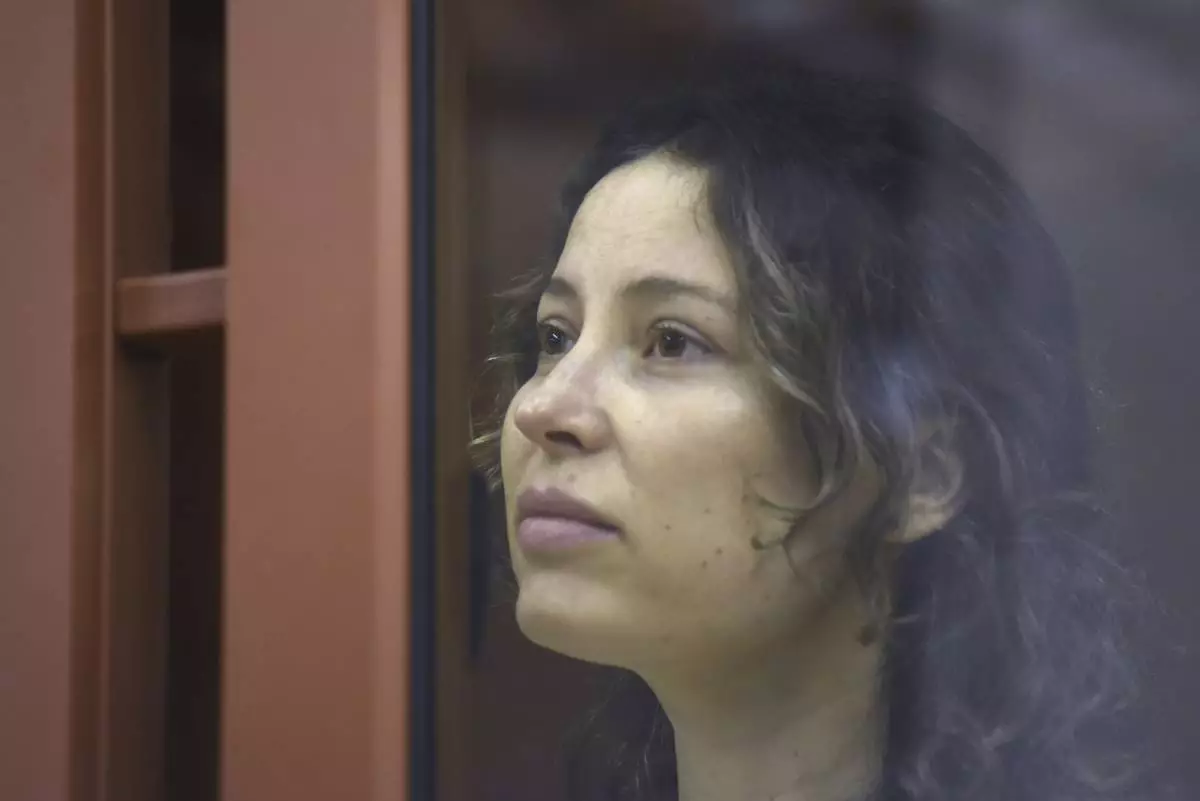
FILE - Ksenia Karelina, also known as Khavana sits in a glass cage in a court room in Yekaterinburg, Russia, Thursday, Aug. 15, 2024.(AP Photo/File)







